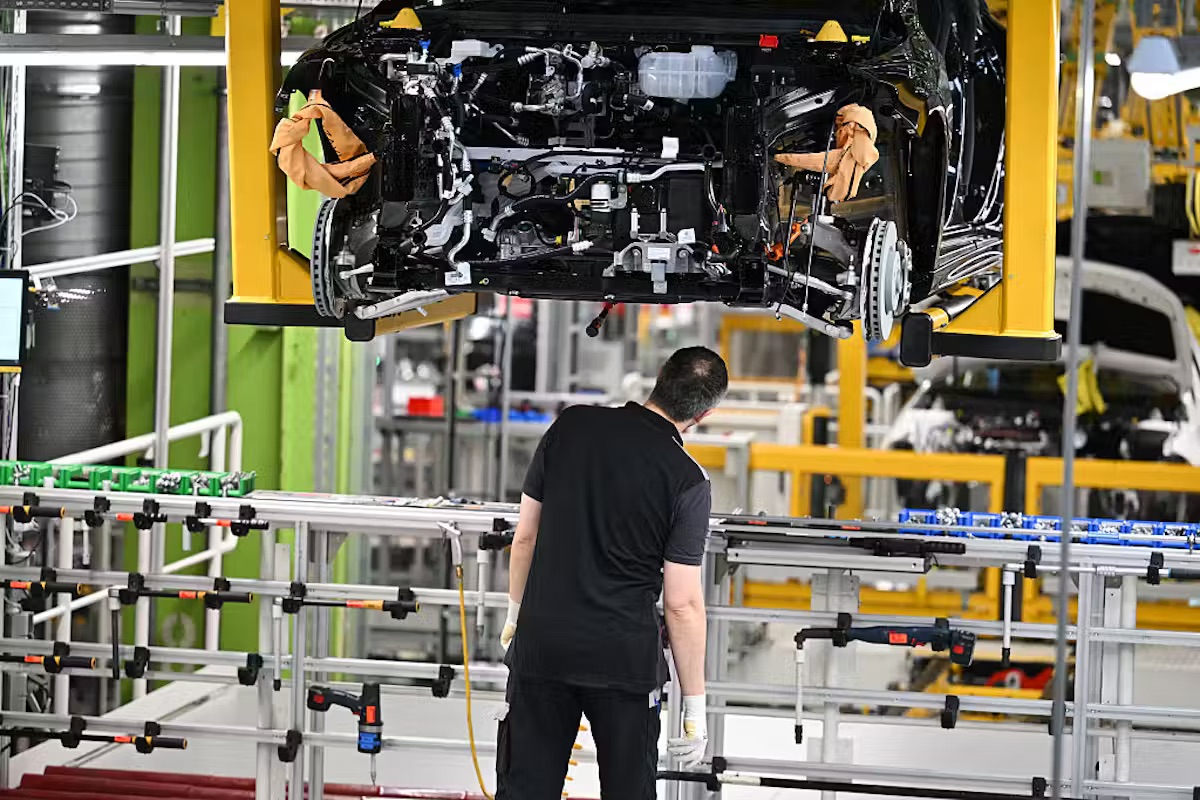Opinion: 9 Myths About Electric Vehicles Have Taken Hold of Consumers
More people believe misinformation about electric vehicles than disagree with it and even EV owners tend to believe the myths, our new research shows.
We investigated the prevalence of misinformation about EVs in four countries – Australia, the United States, Germany and Austria. Unfortunately, we found substantial agreement with misinformation across all countries.
People who endorsed false claims about EVs were, not surprisingly, significantly less likely to consider buying one.
Electric vehicles are vital in the fight against climate change. But pervasive misinformation is a significant challenge to the technology’s uptake and has serious implications for the shift away from fossil fuels.
Widespread Agreement with False EV Claims
We surveyed 4,200 people who did not own an electric vehicle across the four countries. We measured the extent to which they agreed with these nine misleading claims about electric vehicles:
9 Big Myths About EVs
| Myth | Fact |
| Due to the resource intensity of the production process, electric vehicles produce more carbon emissions across their life span than petrol cars do. | Lifetime emissions of petrol cars outweigh lifetime emissions of electric vehicles. |
| The electromagnetic fields emitted by electric vehicles majorly disrupt the migratory patterns of birds and other wildlife. | EVs primarily emit electromagnetic fields with extremely low-frequency which are unlikely to impact wildlife. |
| Electric vehicles do not reduce climate change because their production requires mining rare minerals, which causes deforestation, and so increases CO₂ in the atmosphere. | The mining required for EV batteries can lead to deforestation, but the overall effect of EVs on emissions compared to petrol cars is still positive. |
| Electric vehicles emit electromagnetic fields that can lead to serious health issues, including cancer. | Measured field levels of EVs are considered low and not a health concern. |
| Electric vehicles are more likely to catch fire than petrol cars. | EVs are less likely to catch fire than petrol cars. |
| Electric vehicle batteries are designed to fail after a set number of charge cycles to boost manufacturer profits through replacements. | Outside major recalls, the replacement rate for EV batteries is below 1%. |
| Electric vehicle batteries are deliberately made non-upgradeable to force consumers into purchasing replacements. | There is no evidence that EV batteries are deliberately designed to be non-upgradeable due to profit motives. The target lifespan of an EV battery is 15 years. |
| Compared to petrol car technology, electric vehicle technology is designed to be unnecessarily complex to prevent DIY repairs and force people into expensive service centres. | EVs do not need to visit service centres more often than petrol cars. Safety considerations make DIY repairs more difficult with EVs, but there is no evidence this is by design due to profit motives. |
| Electric vehicle accidents are deliberately under-reported by authorities. | There is no evidence to support this myth. |
What We Found
To tally the results, we looked at participants’ responses for all nine misinformation statements – more than 36,000 responses in all. We then calculated how many of these responses indicated agreement or disagreement.
Of the 36,000 responses, 36% were in agreement with a statement and 23% were in disagreement. A further 24% were undecided and 17% did not know.
Misinformation agreement was highest in Germany and lowest in the US, but the differences between nations were small.
The most widely believed myth is that electric vehicles are more likely to catch fire than petrol cars. Some 43–56% of people agreed with the statement, depending on the country.
Agreement with misinformation was strongly correlated with a lack of support for electric vehicle policies and a lack of intention to buy an EV in the future.
A separate part of the research involved 2,100 people in the US, about half of whom owned an electric vehicle. Surprisingly, EV owners did not significantly differ in their agreement with misinformation compared to non-owners. This underscores how embedded the problem has become.

It’s Not About Education
We also examined the factors that make individuals more susceptible to EV misinformation.
The strongest predictor was people who scored highly on a “conspiracy mentality” – in other words, they believed conspiracies were common in society, they saw the world through a lens of corruption and secret agendas, and distrusted institutions.
People with progressive political and environmental views were less likely to endorse misinformation about EVs.
A person’s scientific knowledge or level of education was not a predictor. This finding aligns with previous research and suggests that the pervasive endorsement of misinformation stems from distrust in institutions and expertise rather than from a lack of education.

Grounds For Optimism
We tested whether misinformation could be reduced with two interventions among a different sample of US participants. One group was asked to converse with ChatGPT about their views on EV misinformation. The second was asked to read a traditional EV fact sheet from the US Department of Energy. On a third “control” group, no intervention was tested.
Participants who engaged with either ChatGPT or the fact sheet before we surveyed them showed significantly lower endorsement of EV misinformation compared to the control group. This persisted at a follow-up session ten days after the survey.
Notably, ChatGPT did not produce any misinformation about EVs. These results build upon existing research demonstrating ChatGPT’s potential to reduce endorsement of conspiracy theories.

How to Tackle EV Misinformation
Our findings show misinformation about electric vehicles has a substantial foothold in Western nations. Susceptibility is not a matter of education or knowledge, but rather stems from distrust of established institutions and expertise.
We also found that people who engage with facts about electric vehicles are less likely to endorse misinformation.
This suggests a dual strategy is needed to reduce misinformation about EVs. First, those who deliberately spread misinformation should be held accountable. And second, evidence-based information, including accessible AI tools, can be used to build public resilience against false claims.
This article was first seen on THE CONVERSATION.
For more on the latest in business and billionaire reads, click here.
The post Opinion: 9 Myths About Electric Vehicles Have Taken Hold of Consumers appeared first on LUXUO.





